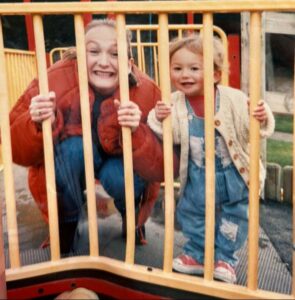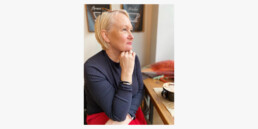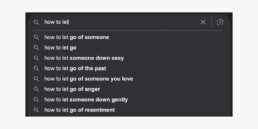Self-limiting Beliefs
A guest blog by Sarah Hussey.
Performance coaches, ADHD coaches, executive coaches, in fact all coaches, spend a lot of time exploring the self-limiting beliefs of our coachees. We look at how they can change their perspective and change their beliefs to promote success. But how many of us do it for ourselves?
Recently during a birthday text exchange with someone I have known for twenty plus years, I expressed concern that my new business venture will be a disaster and that I am completely out of my depth. Her reply was this - ‘Everything you do is successful Sezza. I can’t wait to see it grow.’ I must point out that this message is from my daughter’s best friend who she met in year 1 (hence the silly nickname Sezza). I read that message, smiled, and thought no more about it… until today.
I officially launched www.possibilitiesandperspectives.co.uk on 19th September and I am already frustrated that, despite lots of interest, I do not have a diary overflowing with clients. I feel like I have failed at the first hurdle.
All my life I have had this recurring image of myself as a ‘failure’, but I think that I am beginning to realise that this is my perception of myself and not what other people see.
Big Time Failure Number 1:
I failed school! More specifically I failed a lot of exams and was constantly in trouble at secondary school.
At primary school I was keen, interested and loved to learn – nothing was too much of a challenge. During my secondary education things took a turn for the worse. The harder the learning was the less willing I was to have a go – I did not know how to fail and learn from it. I could not focus, I was easily distracted and became more and more disruptive in class. My maths teacher made me sit in her cupboard during lessons so I could not be a distraction for everyone else. I quickly adopted the persona of the class clown and my peers realised that if they dared me to do something then I would always accept the challenge. Hence, lighting a cigarette over a Bunsen burner and setting my hair alight!
When I was 11, I remember a teacher telling my parents I was Oxbridge material, yet by sixth form my history teacher wrote on my report that he couldn’t say anything about me as I was yet to turn up to any of his lessons.
So, there you go, clear evidence of my failings!
I am now 53 years old, and I have a degree, a teaching postgraduate certificate, the NPQH (head teacher certification), diplomas in Psychology and Performance Coaching with Neurolinguistic Programming. As well as many other certificates for training over the 25 years that I have successfully worked in education.
Does this not make me a success?
Big Time Failure Number 2:
I fail at important relationships. More specifically I broke up with the father of my two daughters.
This ‘failure’ haunted me for many years – I felt guilty that I had spoiled the chances of the girls growing up in a home where both ‘loving’ parents lived and had an equal role in parenting. After all, as it was publicly known at the time, it was me who left after 13 years together. Their reality of course was very different, this was an extremely toxic relationship with an older man who controlled every part of my life – the first control was getting me to leave university after just a term. I had the girls when I was 23 and 26. I did not know how to be a parent. During this time, my parents insisted that I study, and I had completed an Open University degree by the time my second daughter started school. Whilst I was studying, I worked in several schools in a support role. My first job was a mid-day supervisor. Any money I earnt paid for childcare, and I had nothing left after that was paid. In 2000, I became a teacher after a hard PGCE year and I left that relationship shortly after, with a car full of children, kittens and clothes!
In 2003 I began a new relationship, which is now in its 20th year, and he has been everything the girls and I needed and deserved.
So, does this make me successful at relationships?
Big Time Failure Number 3:
I failed at headship. More specifically I have given up headship due to my health.
Several months ago, I wrote my blog – How Headship Broke My Heart and it was published on www.those-that-can.com by Dr Emma Kell.
In a nutshell, I suffered a string of cardiac events which left me very unwell for a long time. After I had accepted that a return to headship was not really a sensible option, my mental health took a nosedive too. I had lost my purpose and really didn’t know who I was anymore. After 12 years of headship and 25 years in total in education, I could no longer do the job as I could not cope with the stress and pressure and my body and mind had failed me.
I now have a diagnosis of Microvascular Cardiac Disease; this is not a very widely known syndrome as it is a cardiac disease that really only affects women and is linked to stress and the hormonal changes in perimenopause (ladies look it up). I have spent the last few months training to be a performance coach with neurolinguistic programming and have launched my own small business. I have created, marketed and networked hard over the past few months. I have had a business launch and have started up a support group for women with ADHD on the Isle of Wight where I live. The business is ready to take off and I love the freedom I have now. For the first time in my life I do have a worklife balance. The passion I have for supporting others has been reignited and I feel as though professionally I have reinvented myself. Whether the business succeeds or not, I have realised, has a lot to do with my self-belief and how I can sell the services that I offer.
So, am I a failure?
Absolutely not! I am resilient, strong and adaptable. I have had (like all of us) a life of highs and lows – but when I am knocked down I will at some point get up and be even more brilliant!
We must stop limiting ourselves with our perception of our failures and change our perspective on ourselves!
A guest blog by Aini Butt.
The biggest mistake we make is when we put terms and conditions on the act of letting go; that in itself is a paradox.
I know that this will be directly in contradiction with the countless podcasts, self-help books and motivational quotes you will find. I turned to all of these at some point, and it would be a lie to say that they did not provide me momentary respite. However, as time went by, I found myself more conflicted than before. Until talking to a friend led me to recognise the paradoxical nature of controlling the act of letting go.
As we experience life’s many turns, it is inevitable that we face hurt, grief and disappointment. Often we hold on to these events for various reasons, which may manifest itself in our daily lives as: anger, pain, lack of self-worth, anxiety – the list is as endless as our lived experiences.
Nature teaches us so much about the act of letting go. At the height of its bloom, a tree will set itself ablaze to adapt to its changing environment and gracefully let go of its leaves to ensure survival during the cold winter months.
‘Tired from holding on, into my Mother’s lap I descend.
With the knowledge that I will bloom again, this is not my end.’

These were the final lines from my poem depicting the tree’s journey of letting go. Yet I failed to learn the lesson Mother Nature was trying to teach me: true growth requires letting go of one’s dead leaves and trusting one’s ability to bloom once again. Although I knew WHAT I needed to do, the HOW was still a mystery, so like many I also turned to the great Google for advice.
A search for the words ‘how to let’ is finished off with a range of suggestions with ‘how to let go of someone’ and ‘how to let go’ right there at the top. Whether it is to let go of someone or something, there are countless places to turn to advice.
Even on Spotify, searching just the word ‘letting’ results in a long list of podcasts on how to let go. I can’t deny the fact that some of these provided very good insight and powerful advice when I needed it the most.
However, the more I focused on letting go, the more my mind was reminded about things that I was trying to let go of. In those haunting moments when the daily tasks became too much, I resorted to a prioritisation technique which helped me organise myself better at work. However, this time, I wasn’t at work, so the checklist included all the little things I needed to do to function as a ‘responsible’ adult. I even added relaxing to ensure that I ticked that box off. I remember proudly telling my friend that I was managing my emotions better because I was ticking off the boxes one by one. It was at that moment that she said something that I did not understand at the time, but continuously reflected on: ‘Why do you need to write to have a shower and relax?’
The worst thing was that I had forgotten to add lunch to my list, which meant that I forgot to eat while trying to work through each task.
Although the list allowed me to have a productive day, it didn’t provide the time and space I needed to reflect on my emotions. My own writing became a reminder for me: An escape route will become a maze if you are running from yourself. Similarly, listening to podcast after podcast and making a list of active steps towards letting go allowed me to move through the initial stages, but eventually it became yet another way of running from what actually needed my attention. Maybe it was toxic productivity under the guise of self-care because it was only addressing things at the surface level.
Recognising the emotion and acknowledging its presence is the first step, just like observing a tiny ripple at the surface of deep waters. We often name one conscious emotion, but we forget that sometimes opposing emotions and thoughts can exacerbate the inner conflict. Until we acknowledge the full range of our emotions, this internal battle will not come to a ceasefire as it will result in the biggest form of self-betrayal: silencing your inner voice or gaslighting yourself.
The paradox lies in actively working towards letting go; we become consumed with the idea of not thinking about something when actually just the thought itself will make you focus more on the issue. Tell yourself not to think about elephants and the first thing your brain will do is give you an image of an elephant. This simple example shows that our minds will depict what we are familiar with. Our brains are beautifully complex, but we forget that our physical, emotional and mental health are all wired together. So, when we focus on moving on or letting go, our minds will try to provide us with images of what this may look like according to our past experiences. When we cannot fall back on our past, the only depiction of what ‘letting go’ looks like is formed through a checklist of ‘how to let go’. However, in our obsession (or desperation) to move on, we forget that two people who have experienced the same situation will not live those experiences in the exact same way, and neither will they process these according to a generalised checklist. As a result, the inner conflict rages on when you tell yourself that you have ticked off all the boxes so surely you should have been able to ‘let go’ by now. This is when we start looking at ways to blame ourselves rather than using this as an opportunity to reflect – not just reflect the ripples, but critically self-reflect on the depths of those emotions.
When it becomes too difficult (or too painful) to look beyond the surface, it is helpful to talk to someone. Whether it be a friend, a coach, a therapist or anyone else who you can open up to without any judgement. Reflecting through the lens of our past experiences and others’ expectations of how to process these can often result in distortion.
As Rumi said,
‘The one who has a good friend doesn’t need any mirror.’
A friend who will become your mirror and reflect without any filters, someone who will listen and support the dive within. I have been blessed with friends who have been my mirror to reflect not only the ripples but also remind me of the values I stand for. Although they can clear the fog and help me to see what the mirror holds, they cannot change the lens of past hurt, betrayal or anger. How often have you sought validation from the mirror with a forced smile? Mirrors do not lie yet you continue to deceive yourself to run from the journey within, which cannot be signposted through a set of generalised bullet points.
Therefore, when practising the art of letting go we need to seek opportunities for reevaluating our values through critical self-reflection, which requires the recognition of our conscious emotions and taking responsibility for our actions as these are underpinned by our values. Burns (2002) defines critical self-reflection as:
‘The process by which adults adopt alternative perspectives on previously taken for granted ideas, actions, forms of reasoning and ideologies.’
These alternative perspectives require a conscious reevaluation of our values and their origin. The roots of these values are often formed early in our childhood and continue to be a guide for all our responses to external factors. When our emotional response to painful experiences differs from those around us and continues to haunt our reflection, it becomes vital to travel to the roots of our values and find the suppressed emotions.
This is where you will find the first steps to letting go, which is all you need when embarking on a journey within – a path only you will tread upon.
4th September 2023
A guest blog by Sarah Hussey.
The day that Holly got her ADHD diagnosis was bittersweet to say the least. She was 28 years old and we were in the Psychiatrist's office together after an intensive assessment process that went from her early years right up to the present day. We had arrived at the place together after Holly had admitted being really struggling (not for the first time) with life in general and had returned to significant self-harming. This diagnosis has changed our outlook on life but would have been far more useful 15 years ago. I doubt very much that she would have been diagnosed before her teenage years. As her mother I felt both relief that we had finally got there and guilt that it had taken so long. As an educator all I could think was ‘how the F**K did I not put two and two together and make four’. And therein lies the problem for women with late diagnosis ADHD; all the health and education professionals involved with you over the years (and sometimes your own family) put two and two together and make five, six or even seven – but never four!
When I began teaching in 2000, ADHD was something that only boys were diagnosed with, and often it was thought that chaotic/negative parenting played a central role (nonsense of course!) These boys were often impulsive, loud and caused daily disruption in your class, and this is still very much how it presents in boys today. Thank god we are better educated now but I wonder how many girls in my classes were struggling with ADHD, but because it presents so differently in females are now only getting the support they need?
In Holly’s early life there were factors that would not have led you to an ADHD diagnosis initially; she had a traumatic birth which led to her being in NICU and the first nine years of her life was spent in a home where domestic violence and alcohol and drug abuse was the norm – something we have all taken a long time to process and accept.
As a baby she never slept for longer than two hours, night or day! I did not know whether I was coming or going for the first two years of her life. She slept with me every night and only managed one night in her cot, and she screamed herself to sleep whilst I cried (the health visitor said I had to be tough!) Incidentally, when her sister was born three years later, she slept through the night at ten days old. I had to keep checking that she was breathing!

Holly was a curious child, her speech was great and she read at an early age – her love of books came from her maternal Grandma. She loved to learn and could retain so many facts and figures about things that she was interested in – if she wasn’t interested, forget it! She liked to please at school and was compliant and followed the rules. At home, she was a live wire, she wanted to do everything. At one stage in her school life we were running her to events every night of the week and at weekends. She played football, cricket, netball and she was part of an athletics club and ran long distances competitively. She rode horses, and surfed and swam – in fact she swam the Solent! She still runs most days and has competed in marathons and triathlons. Once she began High School at 13, she joined the gym and went twice a day most days. She was also very academic and took her studies very seriously. It was also obvious that she struggled with relationships with others and her own view of herself. We really struggled to understand how her mind worked – not long ago she told me that her head was ‘so loud.’
During her teenage years Holly struggled with her mental health – she lost a lot of weight and was not eating anywhere near enough to fuel the daily exercise she was undertaking. She was diagnosed with Anorexia and referred to CAMHS. Over the years there have been many suggestions and diagnoses from various professionals – Anxiety, Depression, Bi-Polar Disorder and Anorexia have all been attached to Holly and all with different treatments including medication. None of these ever seemed to make things any more understandable or manageable for her or the rest of the family. Then it was time for university, and this is when she really began to unravel. Managing life was too difficult for her and she was completely overwhelmed all the time and like so many young women in her position she self-medicated with whatever helped her at the time. Believe it or not, despite how hard it was and still is, she has a nursing degree and is now training to be a doctor. Her resilience astounds me.
Holly is one of many young women who have been wrongly diagnosed for years. It is a sound argument that it is because we knew less about ADHD in women 10 or 15 years ago – but we know now and have to do better! For a start, waiting lists are so long on the NHS you may as well give up before you even start – we were lucky enough to have family support us to go through the assessment privately. However, this in itself comes with the fact that some people think that if you pay for a diagnosis then of course you will get it! (I don’t think any of us, including Holly, wanted her to have ADHD). Educators need training to recognise the signs of ADHD in girls so they won’t have to struggle for so long. Research now shows that if young people are safely medicated earlier on in life, they will be less likely to use drugs/alcohol/sex/crime to self-medicate – surely this is what we want for our young people?
Holly does take medication to help the symptoms of her ADHD – it took a while to get the dosage right and for her to accept the side-effects, which are not pleasant. She can choose when she can have a break from them and knows that they do not mix with alcohol – she hasn’t drunk for months. We have both been on a journey and have read lots of books together and researched how ADHD is different between males and females. As a mum, I hope that I understand her better and try very hard not to let things that would have annoyed me before worry me – like the inability to see any of the mess she creates around herself or the difficulties she has when plans change. I sincerely hope that she understands herself better and accepts that there are some things in life that she will always find hard. The one thing that the Psychiatrist said that has stuck with me, is that he was utterly amazed that Holly has succeeded with so many things in her life considering the significant impact ADHD has on people. (I do intend to follow up this blog with others about ADHD and how it presents in females, but if I continue writing now it will become the first chapter of a book and not a blog!)
I have written this with Holly’s blessing and I am hoping that she is also going to write a blog telling us all what it is like for her.
I am incredibly proud of how she has survived this journey and is now beginning to thrive – it has been a hard road for her and everyone that loves her and I am grateful to you all for showing her patience and understanding.
Incidentally, ADHD is thought to be genetic and the more I have learned about it and myself the more I believe that I too have ADHD. I have been referred for an assessment by my wonderful therapist but on the NHS – I am in no hurry as I have managed it for this long. People often comment on how alike Holly and I are in many ways, so ADHD will become something else that we share.
28th August 2023
A guest blog written by Julie Cassiano. Follow Julie on X (Twitter) @julie_cass1.
Firstly, a huge congratulations on securing your first headship. I could not be happier for you. You must be feeling excited, nervous, eager, apprehensive and every other emotion there is. Do not worry, this is normal. I hope this blog supports your transition into headship.
Confident not arrogant
You may start to self-doubt your capability, allowing your mind to play tricks on you… please stop! Remember it is not your job to assess YOU, thankfully those who appointed you and submitted a reference selected YOU, so, newsflash, you are the right candidate! It is important from day one your behaviours demonstrate to others (all stakeholders) you are confident to LEAD but without arrogance.
Why is this important?
Believe it or not your stakeholders want you to be successful! Any employee who has worked for a leader who struggles to lead will know this makes the job far less doable and enjoyable. They will want you to show up as a leader who can continue their school’s journey from whatever their starting point. So, what does confident and able to lead mean? It certainly does not mean you turn into Sharpea from High School Musical (just watched with my daughter) – bossing everyone around and throwing tantrums when deadlines are not met – oh no, no! It’s about:
- Calm and patient – take time to reflect before acting
- Active listening
- Accepting feedback
- Bringing people together to evaluate and problem solve
- Creating independent leaders
Confidence is having the strength and wisdom to know it isn’t about you, it’s about empowering those you lead.
Coaching
I was fortunate enough to have two coaches during my first term, yes, two! I had an informal coach, someone who knew me well and had seen my career develop over the years. The second was formal with planned slots & agenda. Both offered different expertise. I truly believe I needed both for differing leadership challenges.
Self-care
Know the job is never complete. You have made it to headship so time management should not be an issue, but prioritise time for you and your loved ones. This is as important as blocking out time for meetings. I would like to thank my ten year old for assisting me with this. She demands Mum time which I appreciate. During the holidays, aim to switch off or drastically reduce the number of hours you work. It really does make you more effective. I understand that work life balance looks different for everyone (flexi-working) – for some, working some of the holidays shortens the working day on return. For others, they need to shut off for the whole holiday to be effective on return. Just make sure you do switch off.
Ofsted
I cannot discuss Ofsted without first paying tribute to our colleague Ruth Perry. The education community was shaken by this story. I still feel immensely sorry for what happened. Condolences to her loved ones.
As Ofsted or some form of independent inspection will always be a part of school accountability and it is one of the most talked about aspects of headship, I will share some advice and tips I took onboard. Please note, I am not stating that those who have not had a positive experience approached it incorrectly – I am simply sharing what I found worked for me in my context.
Every headteacher will face different Ofsted situations. For instance, some may be leading a school which has recently had a ‘good’ judgement whereas others may take on a school which requires improvement, awaiting a revisit. Another common scenario is leading a school where the last inspection was very positive but your recent evaluations cannot evidence this. Therefore, there is no one size fits all approach but some of the following worked for me.
Avoid absorbing other people’s perceptions. They are other school’s experiences and anxieties that do not need to become yours. Do not judge your school based on information from another inspection and second-hand information.
Consider preparing for Ofsted the same way you prepare to attain a qualification. Action plan how you will evidence your continued success against the framework. RAG rate as you go along – your SEF. Evidence cannot be data alone. It must be something concrete that can be seen/heard/experienced during the inspection. Utilise your staff’s knowledge as they are your experts. Encourage and welcome their feedback. Bring them with you. If they are involved, they will deliver.
Ensure Ofsted runs alongside your school’s SDP/Values or mission statement. Your Ofsted evidence should complement school improvement never dominate it. Never say or do something because you assume it is what Ofsted want to see. Everything must be about your children and their needs. No one is motivated by ‘Ofsted is approaching so...’. Ofsted’s framework and The National Curriculum is loose enough for you to be able to do this. This limits workload.
A typical FEAR I want to address. What if I get that unfair inspector who will not listen to reason? Personally, I am only ever concerned with my own personal experiences. I have not met that inspector. This is not to say they do not exist…I am saying I will only fear what I have experienced. As leaders what do we do if something is a threat…plan for it! Action plan for all possible threats. I hear you scream – oh no but planning for it will add to my workload. This is where networking comes in.
Networking
There are pros and cons to social media. We have already touched on one of the difficulties. Some members will need to use it to air out their leadership difficulties as they are asking for support. When entering the role, reading these can make less experienced Headteachers feel anxious. Remember all contexts are very different. Only assess situations based on what is happening in your setting. In my opinion, the pros to social media well outdo the cons. There is no problem or policy that has not already been solved or created. You must not reinvent the wheel. Spend your first year attending as many webinars as possible conversing with a range of other headteachers in a range of differing settings discussing common challenges and solutions which you can edit. I have found that headteachers are the most approachable people who are always willing to share their expertise. It honestly is the key to success. Personally, I use Education Roundtables @EdRoundtables, Heads Up for Headteachers @HeadsUp4HTs, @Headteacherchat and @PaulGarvey4 (these are all X - aka Twitter - handles). The former two help smaller accounts by retweeting your Qs/challenges if you tag them into your tweet.
Final point
Go thrive and share your success on social media. Do not be shy to tell the world your school is flourishing. I do not believe bragging is a negative thing. It is my favourite read on social media. Others cannot shine if they do not know what is possible. No sports person is ever shy to share their achievements so why should we be.
21st August 2023
- What’s it really like to work in schools today?
- How do the ‘critical incidents’ in our lives and our work influence our sense of identity and our values and what impact do they have on our likelihood of surviving and thriving in the profession?
- Those moments – or chains of events - we remember with multi-sensory clarity – how have they affected our confidence, our effectiveness at work, our close relationships, and our perceptions of the teaching profession?
- What brings us a sense of reward and fulfilment and results in joy, purpose and satisfaction?
- What bends – and threatens to break us a humans and as educators?
- What lessons can we learn as professions and what lessons can the wider profession take from our stories?

These six ‘little’ (!) questions form the heart of the new book I’m embarking upon for Sage Education. With this new project, I'm building upon my doctorate on balancing teaching and parenthood and my two books, How to Survive in Teaching and A Little Guide to Teacher Wellbeing and Self Care (with Adrian Bethune of Teachappy). Like all my work, it is underpinned by pragmatism, experience, stubborn optimism, and the premise that, however lonely this job can sometimes feel, we are not alone. It will be painstakingly research-based but infinitely accessible over a quick coffee in the staffroom, and it aims to provide practical ways forward for individuals and schools and ultimately have a positive impact on our noble and beleaguered profession.
I want to collect your stories - of key incidents or chains of events that had a profound impact on you - from the apparently incidental to the searingly life-change. I want to amplify your voices – those of the new teachers, the leaders, the teaching assistants, the business managers and all the staff working in schools and share your stories (all of which will be fully anonymised) in order to shine new light on the lived experience of working – hoping to work, or having worked – in schools.
Interested in the findings? Watch this space – I’ll be sharing nuggets and thoughts through the writing journey here and on my Twitter, Instagram and LinkedIn pages.
Would you like to contribute? I’d love to have as big a range of voices as possible, and as the project progresses, will be requesting stories related to specific themes or from specific voices in order to ensure, as far as possible, inclusivity. I won’t have the scope to tell every story in detail but every story will form a piece of the mosaic and the themes you illuminate will all influence the book. Follow this SurveyMonkey link to share your story:
As ever, it is a huge honour and a huge privilege to represent the voices of fellow educators.

26th July 2023
We Can Never Be Employers of Choice Until We Promote Being a Sector of Choice
A guest blog by Helen Stevenson. Helen (a former teacher and MAT Executive Leader) is the Founding Director of Satis Education which deals with recruitment at all levels across the schools’ sector. Satis Education are market leaders in MAT executive leadership recruitment. Follow Helen on Twitter.
There’s a huge focus across the education sector about how we become employers of choice. However, I don’t believe we can ever become employers of choice until we operate in a sector of choice.
As education leaders, before we can begin to talk about how to become a sector of choice or employer of choice, it’s really important that we all understand what, in the 21st century, we are perceived to be.
We live in an increasingly consumerist society and as such education, like many other sectors, is viewed as a service industry.
We don’t make things, we don’t sell things – we provide a service. And to provide the best quality service we need to employ the best 'service providers'. With the current crisis in recruitment and retention, we need to do everything we can to encourage a new generation of 'service providers' to join us.
When when it comes to promoting the education sector as a sector of choice, we all have two choices: We can be an Eeyore – the eternal pessimist, or we can be Forrest Gump – the ultimate in glass half full.
Unfortunately, in recent years, and certainly coinciding with an increased use in social media, I fear there are far too many Eeyores taking to social media to bemoan our wonderful profession. I don’t believe in 'naming and shaming', so I purposely won’t provide examples.
However, as someone who spends a lot of time on social media for professional reasons, please believe me when I say if you are connected to people within the profession, it won’t take long before you come across numerous posts from education staff complaining about their job, directly or indirectly.
How do you feel about this?
What impact do you think it has potentially to new entrants to the profession?
But before I offend anyone I want to make one thing very clear, I’m not for one second saying that working in the education sector is easy. There are a number of issues that need to be tackled – the most pressing of which is workload.
And I for one would love to provide the silver bullet that means we could rid our colleagues of overwhelming workloads in one go – sadly none of us can do that.
The challenge of teacher workload is not one that will be resolved overnight – it will take school leaders collectively and persistently knocking on the doors of those in power and those who would be in power before anything is done. Together we are stronger, together our voices are louder, together we become a crowd and are more difficult to ignore.
But for the time being we can also be relentless in coming together to promote the positives, as well as seeking to address the negatives. Building the reputation of the sector will allow us to try to do something constructive about the recruitment and retention crisis ourselves.
In preparation for a presentation I gave at a conference recently, I contacted some colleagues and asked why they had chosen to work in education. And without sounding like I’m presenting Family Fortunes their top answers included:
- It’s more than just a job – you get the chance to make a difference
- No two days are the same – it keeps you entertained
- You become not just a teacher but a lifelong learner
- It’s generally a secure profession – a job for life if that’s what you want
- It’s a profession that allows you to be flexible in terms of where you choose to live and work – your qualifications and skills are recognised nationally and internationally
Now I have to say I don’t think that’s a bad list... it contains a great balance between altruism and personal gain.
If we let the Eeyores dominate we’ll reach a position where we’ve become part of the recruitment and retention problem, by promoting a narrative that puts people off joining the education sector.
I believe it’s incumbent on us all to accentuate the positives associated with the profession, in an attempt to ensure the sector becomes a sector of choice.
We are in charge of our narrative – let’s make it a positive one.
Clarity, Connection and Coaching
Dr Emma Kell in conversation with Sarah Hussey. Reflections on her recent health scares, tips for current school leaders and the power of coaching.
Possibilities and Perspective
A guest blog by Sarah Hussey.
Possibilities and Perspectives or What You Get When You Begin to Heal.
My little blog, How Headship Broke My Heart, was viewed over 400,000 times! It connected me with all sorts of wonderful people, and I even appeared on the local news! So, for anyone who is interested, here is an update from my current position in a brave new world.
As I write this, I am sitting on a blanket outside a beach hut close to where I live on the Isle of Wight. It is a Tuesday, term time and 2 o’clock. I am calm and I am breathing. It feels alien and amazing all at once. I am not in front of a screen (I am handwriting in a notebook), and my phone is on silent. I am calm and I am breathing. I do not have an emotionally dysregulated child (or two) with me, building Lego to calm down (neither do I feel the need to explain this to a member of staff who perceives this to be a reward!). I am calm and I am breathing. I am guessing that my blood pressure is fine, and I have a distinct and welcome lack of pains in my chest, head or arms and no sign of overwhelming feelings of anxiety. I am calm and I am breathing.
I am also very lucky.
It has been six months since the cardiac events that hospitalised me and scared myself and my family to distraction. Six months since I admitted to myself the impact that headship was having on my physical and mental health. I am still taking extensive amounts of medication daily and cannot do everything as ‘full on’ as I used to. I know I cannot go back to headship and stay well, and I am still waiting on a decision about ill health retirement (patience has never been a virtue of mine). On reflection though, I am not just lucky, I am lucky to be alive.
During the past few months, I have started to heal, and I have realised much about our education system and about myself. I maintain that the system is broken and serves neither pupils or school staff. It has slowly dawned on me that I am just one person, and that I cannot and should not do the job of five. And I finally recognise that I deserve a ‘good life’, but that doesn’t mean I can’t care and support others along the way.
Don’t get me wrong – I miss the school community deeply. It is a wonderful concoction of families and staff that I have invested my time and emotions in. I miss contact with the children, cuddles, jokes, comments about my outfits and, of course, the joy that good education brings them. I have learnt that I thrive on human contact and interactions and on some days I feel the loss of them.
However, there are many, many things that I do not miss. In pole position is jumping through hoops for an invisible inspectorate. Followed swiftly by the absolute ridiculousness of testing children for government league tables and allowing them to feel the pressure of these nonsense exams! After considerable rumination, I think that my third position would go to the daily difficult conversations and conflict that now makes up a large part of the headship role. I could go on…
For weeks after I was signed off, I didn’t know who I was – I had lost my sense of purpose. But over time I started to return to myself and remember who I was before I broke. I naturally have days when I am anxious about my heart health. I suffer with angina quite regularly and although I know how to treat it and what to avoid, sometimes I worry that the pain will turn into something more sinister. I have a wonderful therapist, who quickly identified that I have trouble slowing down and want everything done immediately (there has even been some discussion about ADHD – who would have known?). Her services are provided by the wonderful NHS, free of charge! And amazingly, my internal monologue telling me what a failure I am only pipes up occasionally and is no longer on a permanent loop!
If you are still reading, well done – stay with me as this is the important part! During the healing process I have been blessed with two life affirming things – possibility and perspective. I have possibilities stretching out in front of me. I am training to be a performance coach (with NLP), and this is teaching me valuable lessons about life and how we approach it. I am excited/terrified about supporting others to gain clarity and reach their goals. My mind is working overtime, ideas jumping about. Could I write a book? Train others to coach or teach? Run a cake shop that sells books? Become an influencer? A stand-up comedian? A pub landlord? (Okay I agree not all of them are sensible ideas!) But it is time to set some new goals, use my skills in a different but not less important way and how blooming exciting is that?
As for perspective, it is a game changer! All of the terribly important things that kept me awake at night, that I wanted to do better – they are no longer important to me. I did my best and that was enough. When you are in the midst of a busy life, in stressful situations, your perspective can be lost, normally shortly after your sense of humour!
Perspective has made me look to the future. When you suffer trauma of any kind you need time to adjust (recognised by therapists now as Adjustment Disorder). Knowing that you have risked your health for your job brings both clarity and perspective.
It is an obvious thing to say, but it is something we forget. You have one life and how you shape it is in your hands…
What It's Also Like to Be a Teacher
This blog is reproduced here with permission. Written by Ian McDaid on his blog on 15th May 2023.
Preface from Emma
I’m constantly struck by the narratives around our profession and am acutely sensitive to how they play into the ongoing and serious recruitment and retention crisis in teaching. Whilst it’s important to call out poor practice and be honest about challenges, it is also essential that we remember that working with young people is a privilege and is frequently joyful and rewarding. I came across this blog during what feels like a particularly dark period in our profession, when something bordering on despair seemed to pervade my interactions and my social media and it was a poignant and essential reminder of how wonderful this job can be, despite everything.
What It's Also Like to Be a Teacher
“Good morning Sir, had a good weekend?” That was my first interaction with a pupil today. However it wasn’t the first interaction since leaving school on Friday. Over the weekend I received this:
“Hi sir, I just want to inform you that I will be going on holiday on Saturday 20th May so will be missing the last week of term. This is a one off holiday and I my attendance this year has been 100% so far.
My parents did inform the school on the 5th February with a leave of absence form, but I was unsure if the attendance team had informed you.
Do I have to let all my individual teachers know?
Kind regards, ********”
Day then continues with praising a form for their attendance last week, and bigging up all last week’s achievement points awarded.
First lesson of the day… a timetable rotation mix up. I’ve got a whole class of kids sitting in a room, books open and raring to go. It’s the wrong class! Off they trot to where they should be and the correct class arrive shortly after.
Parental email to respond to, querying a detention ending with the words “if this is the case you have my full support”.
Break duty, always tricky, but more positives to take away. What stood out was the politeness of the student who wanted access to the lift. Good manners always appreciated and make a huge difference. Also spoke to some Y11s who were positive about the RS GCSE they just sat.
Practical lesson with Y8. Engaging, happy hour, with loads of achievement points awarded for outstanding work. Yes, a few positive rule reminders needed, but that is the norm.
After lunch I see a student I teach looking anxious about attending a lesson. I acknowledge that she looks agitated, and tell her to take a few mins to compose herself. I’m thanked by her. Without kindness we have nothing in schools.
Last lesson of the day was the most challenging. An example of one or two students wanting to rule the airwaves. Yes, sanctions were applied, more than I’d like, but that is why systems exist – to support teachers so we can get on and teach. Take away from that lesson “is it as easy as this?”, says the previously sanctioned pupil!!
Let’s see what tomorrow brings… other than a fresh start for every pupil.
Image by Freepik
A day in the life of a teacher
I teach part-time in an Alternative Provision setting - all of these things have happened, just not all in the same day. I have blurred details on purpose.
It's been one of those mornings. I'm a bit tired. Had that dream again about losing kids on a school trip. I'm wearing navy tights with a black dress - oops. My lanyard was eventually tracked down to the dog's toy box.
8.55. 'Miss, is this your phone? You really shouldn't leave it lying around.'
I explain that I've been in a bit of a rush. He says, 'We've talked about this before, Miss - slow down!' Then he describes his meticulous morning routine, which includes exercise and carefully-chosen proteins. I've been out-adulted by a 15-year-old.
He's not been with us for long. His files from his other schools make eye-watering reading. He's been 'written off' my more than one school and I sympathise with his former teachers, whilst wondering how on earth it went so wrong, so quickly.
'You know what, Miss? I think I can actually get a Grade 6. I got 33 marks in that last paper. What's another word for 'confused'? Can you mark this bit, please?'
When I first taught him, he stared into space for three consecutive lessons, refusing to engage with any of my lovingly-constructed 'what I wish my teacher knew' sessions, which are usually a dead cert. 'Your earliest memory?' 'Dunno.' 'What scares you?' 'Nuffing.' 'Something that makes you laugh...?' 'Huh?'
9.32. 'Miss. I've told you. I don't speak Shakespeare.'
9.37. 'Miss, man. Juliet was thirteen?! Three days, Miss? That's just WRONG.' [Vomiting noises.]
The SLT member on-call drops by. 'Hand it over, please.' The student realises the contraband jewellery didn't escape notice. She's huffy, but the SLT member manages to make her laugh as she hands it over. The school dog diffuses the remaining tension.
It's breaktime. I missed out my the 10.27 wee-window and I'm working out when I can dip out for the toilet. Another Arsenal vs Spurs debate over waffles. A 'what you looking at?' scuffle, diffused within what feels like seconds - adrenaline levels return to something near normal.
12.43. 'I don't know how to revise! I can't do it! I'm sh*t at this.'
12.46. We've come up with 8 acceptable synonyms for 'sh*t' together'
1.12. Lunch. Another conversation about dogs. A debate about broccoli. Some students go to help with the gardening. Another goes for the drum and bass session. I manage that wee whilst a colleague covers for my duty.
1.28. Someone's left cake in the staffroom. It's gone by 1.37.
2.21. Someone's drawn a penis on the wall.
2.38. There's a new photo on the wall of students at their achievement evening.
3.13. Locker-time. Nike Airforce Ones are reunited with their owners.
3.45. INSET. Really? My brain's stopped working.
4.08. We're talking about our students, what the research tells us, what we know about them, and what makes them tick. My colleagues make me laugh. They inspire me. They make me want to be better.
4.25. Car park empties fast. I'm shattered. I'm proud. Bring on tomorrow.










